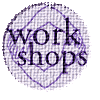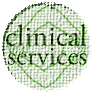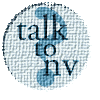FAQS
LOCATION
A physical environment supportive of relaxed learning has been selected for all New Visions workshops. These are held at the New Visions House, in a beautiful rural setting in the serene atmosphere of the beautiful Blue Ridge Mountain foothills 30 miles southwest of Charlottesville, Virginia.
Q: Where is Faber, Virginia? I can't find Faber on the map!
A: Faber is the mailing address for this rural part of Nelson County, Virginia. We are approximately 30 miles southwest of Charlottesville, Virginia. You can find us on the map off of Route 29 -- seven miles north of Lovingston.
Faber may not be shown on your map because of its size. We are actually closer to the little town of Nellysford.
Q: What are the conference facilities like?
A: Workshops are held at the New Visions House, a lovely wood and stone home nestled into a hillside overlooking a beautiful mountain valley of the Blue Ridge.

TRAVEL
Q: What is the nearest airport? How do I get from the airport to the New Visions House?
A: Most workshop participants fly into the Charlottesville, VA airport which is 40 miles north of New Visions. If you are staying at the Fallen Oak Bed and Breakfast, you can arrange with them for transportation to and from the airport. Fallen Oak is across the road from the New Visions House so you will not need a car to get to the workshop itself. If you are staying at a different location, you will need to rent a car at the airport.
Some participants find that it is easier and less expensive to fly into Washington Dulles airport or the Richmond, Virginia airport. Often the car rental cost is less than flying directly to the Charlottesville airport. Dulles is a 3-hour drive and Richmond is a 2-hour drive.
Q: When should I plan to travel?
A: Plan to arrive in the area Thursday afternoon or evening and depart Monday morning. Although the workshop concludes Sunday evening, you will get more out of the program if you are able to fully focus on it, without the distraction of leaving at the end of the last day. Also, the most important aspects of the workshop take place Sunday afternoon. That is when you will work with very specific strategies for applying the information and ideas to your child. If plane reservations must be made for Sunday night, they should be scheduled for after 8:30.
LODGING
Q: Where can I stay during the workshop?
A: Most participants from Charlottesville, Waynesboro, Staunton, and Lynchburg live at home and commute each day.
We can send you a list of local accommodations at a wide variety of small Bed & Breakfasts, motels and private homes in our area.
CHILDREN
Q: Does my child participate in the workshop?
A: No, children do not attend the workshop. They are certainly participants "in spirit" since each workshop participant is focusing on the feeding and mealtime issues of a specific child. Suzanne Morris has also reviewed videotapes and written information on each child prior to the workshop.
Q: Can you provide child-care if I bring my child with me to Virginia.
A: It is much easier for participants to immerse themselves in the workshop information if they can arrange to leave their children at home. Sometimes this is not possible and children need to come with a parent or therapist who is participating in the workshop. New Visions is not set up to provide child care and there is no space at The New Visions House for children and their care providers. Parents need to bring a care provider with them who can drive. We are in a very rural area where amenities such as city parks and playgrounds are unavailable. There are many lovely and interesting places for children in Nelson County and in Charlottesville. Please discuss alternatives with Suzanne Morris if you are thinking about bringing a child with you.
Q: Family members will be coming to Virginia with me. Can they join us for the lunch meals?
A: Becoming a Mealtime Partner
Lunches are included in the workshop registration fee. They are held at the New Visions House where space is limited. Therefore, we cannot accommodate family members for our lunch meals.
A: Mentor Program
Meals are not included in the registration fee. Participants are free to share their afternoon lunch break with family members.
MEALS
Q: I am on a special diet and/or have food allergies. What kinds of food is served and will the kitchen make special meals?
A: Lunches each day are provided by a skilled and well-known local caterer and a local restaurant. They provide customized menu for our group. Meals typically include a salad, soup, a light entree and desert. It is possible to adjust the menu to accommodate individuals with food allergies if we know needs ahead of time. When you register for the workshop, we will send you a Travel and Lodging Form. This contains a question about your dietary needs.
REGISTRATION
Q: Can I register for the workshop by phone?
A: Yes, we prefer to register you by phone. This gives Suzanne Morris an opportunity to learn more about your questions and expectations for the workshop. Your deposit of $350 is due at the time you register if you are paying by credit card and 7 days after registration if you are paying by check. Please give Suzanne a call at (434) 361-2285
Q: Can I register for the workshop online?
A: We are not currently supporting workshop registration online. We prefer to register you by phone or e-mail.
Q: What is the "Partner Registration Fee"?
A: Sometimes two or more participants decide to attend the same workshop and focus on the same child. This might be a parent and therapist, two family members, a parent and child-care provider etc. The regular workshop registration fee includes the time that Suzanne Morris spends reviewing the child's videotape and written materials. Because less preparation time is involved when only one child is involved, we can offer participants who focus on the same child a lower registration fee – the Partner Fee.
Q: Is there someone in my area (geographical or professional) who has taken the workshop? I'd like to talk to someone who's been there.
A: Certainly! Give us some information on your child, background, experience, and specific interests. We can then refer you to an appropriate graduate.
PAYMENT
Q: Can I pay for the workshop with a credit card?
A: Yes. We accept Visa and MasterCard for the workshop deposit. We prefer that you pay the remainder of the registration fee by check to avoid the credit card fee we have to pay. This helps us keep the registration costs as low as possible.
SCHOLARSHIPS
Q: Are any scholarships available for New Visions workshops?
A: We have a small scholarship fund and can provide partial scholarship assistance for some participants. Please discuss this with Suzanne Morris when you talk to her.
BECOMING A MEALTIME PARTNER
Q: I am a (teacher, dietitian, social worker, nurse, physician, parent, etc.), not a therapist. Can I take the workshop, or is it just for therapists and parents?
A: The workshop is open to anyone who works with or has an interest in children or adults with feeding problems. When a workshop includes those with many different professional interests and backgrounds, as well as parents and therapy assistants, there is a rich interchange of ideas and questions. Participants learn as much from each other as they do from the workshop instructors.
Q: I work in a Neonatal Intensive Care Unit: Will the workshop cover information on working with preemies?
A: This workshop is geared toward developing feeding and mealtime programs for children who are living at home or in residential settings. It applies to infants and children who were born prematurely but have been discharged from the hospital.
Q: My child has a feeding tube and is not really participating in mealtimes. Will the workshop be appropriate to our needs?
A: Yes, the workshop will include information, discussion, and videotapes of children with feeding problems who are on feeding tubes. The amount of coverage will depend upon the specific interests of the workshop participants (i.e. sometimes we have a group where this is a high-level interest and concern of a large number of participants).
Q: I work with adults or have a family member who has feeding problems but is no longer a child. Is this workshop appropriate for me?
A: Although the primary focus is on infants and children, there is a great deal which applies to adolescent and adults with developmental disabilities and traumatic brain injury. We do not address the adult feeding issues as the result of stroke, Parkinson's disease, ALS etc.
Q: I have had no experience or background with children with feeding problems and have never taken a course in this area. Will the workshop be too advanced for me?
OR
Q: I have taken many workshops on feeding . Will the workshop be too basic for me?
A: The workshop teaching design is quite different from most workshops you may have attended. Workshop participants have widely differing amounts of experience working with infants and children with feeding difficulties. The focus is placed on integrating new information with whatever the participant's current knowledge may be. Because of the small size of the workshop group, there are many opportunities for individualizing the teaching to the specific needs of individuals within the group. Those who are new to the feeding area develop a solid base of understanding of all aspects of oral feeding and are introduced to tools and problem solving styles that will help them apply the information when they return home. Those who come with a lot of experience and study in areas of movement and feeding will benefit from learning more effective ways of integrating information and planning more nourishing feeding programs.
Q: I am not working with any children with feeding or mealtime challenges. Can I participate even if I am not focusing on a specific child?
OR
Q: I am working with many children who have feeding and mealtime challenges. I don't want to limit my learning to just one child. Can I focus on several children for this workshop?
A: The workshop teaching design is based on applying specific feeding and mealtime concepts to a specific child selected by the participant. Many group activities are based on working with the information, needs and goal directions for that child. For this reason it is important for professionals who attend the workshop to select a child whom they know well. If you are not currently working with a child who has feeding challenges, you could talk with a colleague and "adopt" one of their children. This would involve spending extended time with the child and family before the workshop so that you are completely familiar with the issues of the child, family and current therapist.
Although professionals are focusing their attention and intention on a single child, they will find that the information and strategies that are presented apply to every child on their caseload. Children discussed by other workshop participants often have diagnoses, feeding challenges and environmental issues that are similar to the children whom they are seeing in therapy.
Q: Why should I choose this workshop? How is it different from other feeding courses?
A: There are many features of this workshop which are different from other feeding workshops -- even other workshops taught by Suzanne Evans Morris.
-
Size and Duration
The workshop is limited to 10-12 participants and lasts for 3 very full days. This allows for a highly individualized approach to teaching. You will receive a survey before the workshop asking about your background, learning style, special needs and interests, specific questions, etc. Suzanne Morris takes both individual and group needs into account in her teaching. -
The length of the workshop allows us to cover a lot of information, but also gives time for participants to integrate new information with previous knowledge and experience.
-
Both parents and professionals are included in the group. We have found that a mix of parents and professionals creates an ideal balance for sharing and discussion. A wide variety of personal and professional perspectives usually is represented. The group may include speech-language pathologists, occupational therapists, physical therapists, special educators, dietitians, social workers, nurses, dentists, physicians, and parents. Participants come from all over the USA, Canada, and many countries outside of North America. They work in all types of settings with children and adults with widely differing abilities and needs.
-
There is always a great deal of sharing and problem-solving among participants. This is facilitated by shared meals and ample time during the program for questions and discussion. There is a strong family atmosphere that develops during a workshop
-
Holistic View of Feeding and Mealtime Difficulties
Feeding and mealtime difficulties are viewed through their interconnections with all parts of the child's life. An understanding of the swallowing mechanism and the mechanics of feeding is one part of a very diversified whole. The workshop explores the roles played by communication, learning, physical, sensory and gastrointestinal environments. The total nourishment of the child's body, mind, and spirit is the foundation of an effective treatment program.
-
Accelerated Learning Model of Teaching
An accelerated learning model is used in the teaching design of the workshop. Many different learning styles are represented in a typical group of participants. Some learn more through hearing information, others through seeing it, still others through feeling and moving with it. Some learn more through a rational, logical approach to information; others through a more playful, global, intuitive approach.
MENTOR PROGRAM
Q: Can I attend the Mentoring Weekend if I have not attended the pre-requisite Mealtime Partners workshop?
A: The Mentor Program is open primarily to professionals who have attended either the Mealtime Partners workshop or an earlier workshop taught by Suzanne Morris, Nourishing the Whole Child in the Development of Oral Feeding Skills. This graduate -level program is built on the philosophies and strategies introduced in these two preliminary workshops. Although many of these ideas are presented in other workshops or in books, they are not experienced or integrated in the same way as through participating in the experiential workshop. The teaching strategies used in the workshop, A Mentor Program, is based on the assumption of a common prior learning experience and the material presented in the prerequisite workshops. Exceptions may be made by discussion special circumstances with Suzanne Morris. Since each Mentor Program is custom designed, alternative formats can be accomodated.
Q: Is this a "hands-on workshop?" Will I get to work directly with children during the workshop?
A: No, children do not participate in workshop demonstrations or hands-on experiences during most Mentor Programs. All learning is based on videotapes, discussion and small-group activities. It is possible, however to develop a Mentor Program that focuses on participation in a Mealtime Partners clinical "Family Program"
Q: Can I bring a videotape of one of the children I work with.
A: The workshop is built around topic areas selected by each participant. Participants bring videos of their work with several children and these participant materials are used for group analysis, discussion, and program planning. This gives therapists the opportunity to receive gentle feedback from the group on their work with the child, and additional options for the therapy program. In addition, specific topic areas may be selected by the participants for more in-depth exploration.
Q: How many therapists participate in each Mentor Program?
A: The Mentor Program is designed for a single participant







